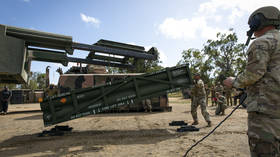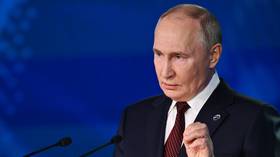Government rebuffs faltering rouble rumours after public rush for dollars
The Russian government has added $US 6.7 billion of liquidity to the markets and set aside the same amount for the next year in a bid to stabilise the economy. But despite Tuesday’s move there have been reports of some Russians buying dollars and euros in
Although Russia’s government has insisted it doesn't have plans to go for foreign currencies en masse, it hasn't quite stopped public concerns.
Since the spring the Russian stock market has fallen even more sharply than the oil price which has put pressure on the rouble.
The Russian Central Bank has injected $US 2 billion into the market and brought in trading curbs in an attempt to support the currency.
And despite rumours that the rouble could falter, the exchange rate has not seen any dramatic changes.
Panic from Ukraine
Eugene Fazleev works in asset management and is also an active blogger.
“Many letters and blogs that circulated were written in such a way as if to deliberately stir up panic. To me it was a clear sign that nothing of the kind would happen. I tried to tell my friends but still half of them fell for it,” he said.
Initially a publication appeared in the Ukrainian media claiming that within days the rouble would drop almost two-fold in comparison to the US dollar.
This was eagerly picked up by Georgian media – all referring to reports on Reuters. But the British news agency says it was simply misinterpreted.
Michael Stott, head of Reuters’ Russia Bureau, said: “What happened was that an unauthorised Ukrainian website which is not allowed to use our information took this news that we reported correctly, distorted it, and wrote a false story on its website.”
The crisis of 1998, when almost the entire country found itself bankrupt, is still fresh in the memory. But a lot has changed since then. And even with oil prices falling and the international financial crisis in full swing, experts aren't overly concerned about the Russian economy.
Christopher Granville, Managing Director of the Trusted Sources investment research service, advises market speculators to “bet on the rouble staying stable or even strengthening somewhere”.













